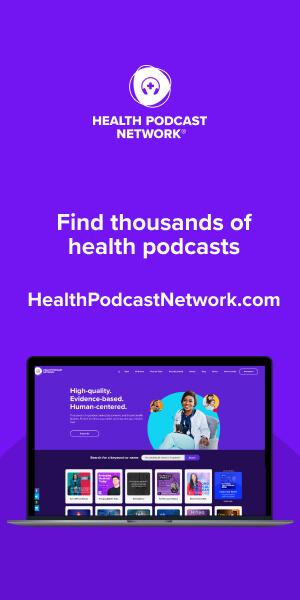Global health initiatives have been a tremendous benefactor of digital transformation. Activities ranging from accessing medical records online to tracking meals in a mobile app that were completely unheard of about a decade ago are now a prevalent element of everyday life. Since individuals have taken advantage of using digital tools within the context of monitoring their health, the healthcare sphere, despite anticipated reluctance, has accordingly followed suit. The booming popularity of fit-tech and other similar advancements within the wellness sphere are making individuals more conscious and proactive about their own well-being than ever before.
An undeniable consequence of the IoT revolution is that consumers have no shortage of resources or access to medical and health-driven information. For example, through using common fit-tech devices (wearables, trackers, applications), consumers can then personalize how they both measure and act on their health information in accordance with their own lifestyles. The result of these technologies has ushered in a new sense of personal accountability: since individuals can now easily access personal performance metrics regarding exercise and diet, they are more likely to regularly make conscious decisions with this data in mind.
New Attitudes Toward Health
To an extent, this “health consciousness” has become somewhat inescapable. In addition to the way dynamic gym software and advanced exercise equipment can directly track our fitness routines, pursuing health has begun to move outside of daily trips to the gym. While most smartphones now come with a built-in movement tracker, advanced wearables like Fitbits, Apple watches, etc. provide detailed and actionable insights regarding our activity levels on a 24-hour scale. This has changed the perception of fitness from a small segmented trip to the gym to a perpetual scale.
Before our wearables beeped at us to reach 10,000 steps a day or reminded us to get up and move around the office, it was easy to discount the importance of making conscientious choices that add a little extra movement into our daily regimens. Furthermore, studies have concluded that many individuals who regularly exercise actually exhibit lower activity levels throughout the day than those who do not, the logic being that individuals tend to use exercise to justify less compensatory behaviors. However, digital fitness trackers are overriding this psychological flaw by constantly tracking and notifying us of our energy expenditure throughout the day.
Potential of Data-Driven Technology
Wearable technology has not only cemented its top spot among fitness trends for the last several years, but the market is projected to quadruple by 2022, which would make wearables exceed smartphones as the highest-selling consumer-based electronic device. With this projected growth in consumer use, wearable capabilities are expected to dramatically improve, especially in ways viable to disease prevention, diagnosis and treatment. In addition to objectively monitoring the individual’s physical output, they will also be able to trace warnings of a developing condition, such as diabetes, verify patient adherence to treatment or prescriptions, and report this crucial data to clinicians.
The digitization of both the healthcare and fitness industries intuitively work hand in hand.
In addition to wearable fit-tech driving health consciousness of individuals, the acquired backlogs of data are equally important in terms of improving the landscape of digital healthcare. Traditionally, patients self-reported their health habits and data to their physicians through irregular visits, which would then be cataloged in antiquated medical record systems or stored in overcrowded filing cabinets. Now, patient medical records have been modernized by interactive digital technologies than can be easily accessed by both medical professionals and the patient themselves whenever.
Furthermore, fit-tech has already crossed the threshold as a utilized tool within healthcare and disease prevention. For example, Fitbit recently partnered with Solera Health in the fight against Type 2 Diabetes.
Their cooperation began in 2017 when Solera experimented with supplying Fitbits to its members that enrolled in its National Diabetes Prevention Program intended to help at-risk members in early stages of the disease. The program’s success clearly demonstrated that participants using Fitbit devices lost more weight and consistently exhibited higher activity patterns throughout the day than members who did not use the Fitbits. Now with more extensive collaboration between the two companies set for 2019, Fitbit data will be used for identifying individuals at risk for varying cardiovascular diseases within the Solera Health network.
As wearables have dominated fit-tech trends, similar technologies have been developed for and readily adopted within the healthcare sphere. For example, Biopatches are physical sensors that attach to the chest and are widely utilized for tracking patient conditions who are under professional medical care. These patches serve as eyes and ears on the patient when the doctors or nurses cannot be there; they will send alerts if the patient’s conditions unpredictably change or destabilize. Similarly, Byteflies Sensor Dots can be worn by patients for 24 hours to collect a wide array of biometric data, like heart rate patterns, EMG, EKG, and PGG levels. The compiled data has proven to be instrumental for doctors to diagnose conditions like sleep apnea and epilepsy.
A Connected Future
With both fitness and healthcare technology exhibiting no signs of decline any time soon, the potential for its use and improvement in the future is boundless. Furthermore, the inevitable overlap between the two will be crucial in both establishing quality medical data to healthcare professionals and keeping patients cognizant of their overall health. On a macro level, digitization of both these industries represents a shift in individuals pursuing healthier lifestyles.





